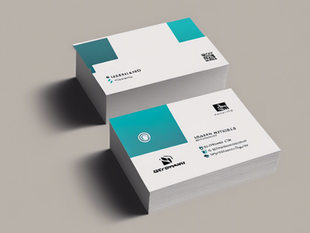
5 Steps to Set Clear Career Goals for Ultimate Success and Fulfillment: The Ultimate Young Professional's Guide
Oct 13, 2024
4 min read
0
5
0
Embrace Your Journey: A Powerful Start
Knowing where you want to go is essential in today's fast-moving job market. Setting clear career goals can be a game-changer for young professionals aged 16 to 26. Without this clarity, it’s easy to feel lost or overwhelmed by choices.
Setting these goals gives you direction and serves as a guiding light through the ups and downs of your professional life. Understanding what success means to you—because it’s different for everyone—can help you navigate your path. This blog post provides practical tips for defining, adjusting, and achieving your career goals while also pointing out common mistakes to avoid.
Let’s dive into this journey towards achieving your professional dreams!
1. Define What Success Means to You
The first step in your career goal-setting journey is understanding what success means for you. This is critical because success is unique to everyone. For some, it may mean having a high-ranking position; for others, it could involve work-life balance or pursuing a passion project.
Take a moment to reflect on what truly matters to you. Here are some questions to ask yourself:
What achievements make me proud? For example, completing a challenging project or receiving recognition from peers.
What work environment gives me energy? Do I thrive in a collaborative, open space or prefer quieter, independent settings?
How do I want to feel at work each day? Happy, fulfilled, and challenged, or perhaps relaxed and stable?
Answering these questions can provide clarity on your personal and professional goals.
Defining your version of success serves as your guiding star, steering you toward future goals.

2. Break Your Goals Down Into Specific, Measurable Steps
After you have a clear vision of success, it's time to break your goals down into specific, actionable steps. This is where the SMART framework comes in—goals that are Specific, Measurable, Achievable, Relevant, and Time-bound.
For instance, instead of saying you want to "get a promotion," try the following breakdown:
Specific: “I want to become a Senior Marketing Manager.”
Measurable: “I will complete a digital marketing certification by July.”
Achievable: Determine if this aligns with your current experience and the skills you can develop.
Relevant: Make sure this goal is connected to your definition of success.
Time-bound: "I plan to achieve this by the end of next year."
By organizing your career goals this way, you make tracking your progress easier and boost your motivation.
3. Regularly Review and Adjust Your Career Goals
As you gain experiences and insights, your goals may need to evolve. Regularly reviewing and adjusting your career goals ensures that they stay relevant and aligned with your definition of success.
Every few months, take time to assess your situation:
Are my goals still in line with my career dreams?
Has my definition of success shifted over time?
What new challenges have I faced, and how do they impact my goals?
Being flexible in this process not only helps you stay on track and adapt to life changes but also encourages resilience in the face of challenges.
4. Seek Feedback and Build Accountability
Your career journey doesn't have to be a solo trip. Seeking feedback and building accountability can significantly enhance your commitment to your goals.
Consider discussing your aspirations with mentors, colleagues, or trusted friends. These individuals can provide valuable insights and constructive advice you might not have considered. For example, if you’re eyeing a leadership role, seek advice from someone who has already made that leap.
Sharing your ambitions with others, whether coworkers or friends, can also keep you accountable. When people know about your goals, you are more likely to pursue them actively.
Regular check-ins with yourself or your accountability partner can ensure you remain motivated on your path to fulfillment.
5. Align Your Goals with Your Passions and Strengths
An essential part of setting clear career goals is making sure they align with what you enjoy and what you’re good at. When your aspirations match your strengths, staying motivated becomes much easier.
Identify your core strengths. Ask yourself:
Am I using my unique skills in my career path?
Do I love the industry or job I’m pursuing?
How can I leverage my strengths to reach my goals?
For example, if you have strong communication skills and enjoy working with people, a career in Human Resources or Customer Relations could be a great fit. When your ambitions resonate with your passions, you're more likely to find fulfillment in your work.
Take Action Toward Your Future
Setting clear career goals is a key step in shaping your professional journey. By defining your version of success, breaking your ambitions into measurable steps, frequently reviewing your goals, seeking feedback, and aligning your career with your passions, you create a blueprint for growth.
Remember that your career is unique to you, and being flexible with your goals can open up new opportunities. Your path to success is not simply about the end result; it’s also about the experiences and lessons you gather along the way. Here’s to your exciting journey ahead! Happy goal-setting!


